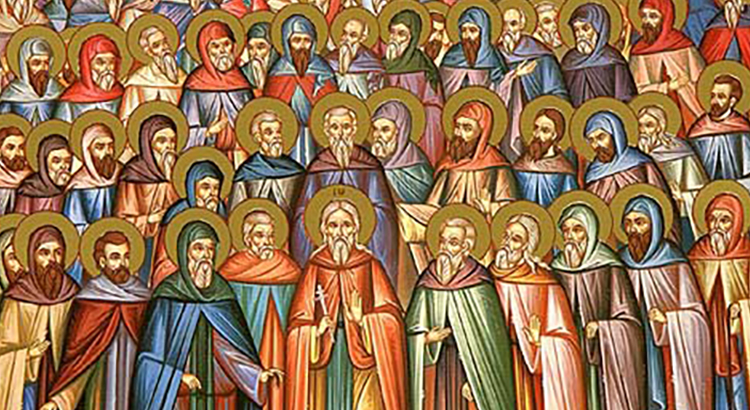Memory of the Saints and the Prophets
Memorial of Saint Jerome, doctor of the Church, who died in Bethlehem in 420. He translated the Bible into the Latin language. Prayer that the voice of the Scripture may be heard in every language.
Reading of the Word of God
Alleluia, alleluia, alleluia
You are a chosen race,
a royal priesthood, a holy nation,
a people acquired by God
to proclaim his marvellous works.
Alleluia, alleluia, alleluia
Job 9,1-12.14-16
Job spoke next. He said: Indeed, I know it is as you say: how could anyone claim to be upright before God? Anyone trying to argue matters with him, could not give him one answer in a thousand. Among the wisest and the hardiest, who then can successfully defy him? He moves the mountains, though they do not know it; he throws them down when he is angry. He shakes the earth, and moves it from its place, making all its pillars tremble. The sun, at his command, forbears to rise, and on the stars he sets a seal. He and no other has stretched out the heavens and trampled on the back of the Sea. He has made the Bear and Orion, the Pleiades and the Mansions of the South. The works he does are great and unfathomable, and his marvels cannot be counted. If he passes me, I do not see him; he slips by, imperceptible to me. If he snatches his prey, who is going to stop him or dare to ask, 'What are you doing?' And here am I, proposing to defend myself and select my arguments against him! Even if I am upright, what point is there in answering him? I can only plead for mercy with my judge! And if he deigned to answer my citation, I cannot believe he would listen to what I said,
Alleluia, alleluia, alleluia
You will be holy,
because I am holy, thus says the Lord.
Alleluia, alleluia, alleluia
What are human beings before God, the creator, the one who sustains the world and orders creation according to his wisdom? Job almost feels crushed by the omnipotence of God: "Who does great things beyond understanding, and marvellous things without number." Even God's judgments are inscrutable. Human beings can do nothing: "Though I am innocent, my own mouth would condemn me; though I am blameless, he would prove me perverse." Job is not helped by the words of his friend Bildad. His words do not convince Job of his sin, nor do they support him in his difficult dialogue with the Lord. Job's greatness lies in the fact that he never stops speaking, asking the Lord questions, or trying to find the Lord's presence by looking for him in history and creation. On the other side, his friends are only capable of parroting a short-sighted theology that tiredly repeats that people are afflicted by evil because of their sin. Job responds to this doctrine by saying that there is no point in being innocent or guilty in the eyes of a God who does not seemed concerned by the suffering of humanity: "If I wash myself with soap and cleanse my hands with lye, yet you will plunge me into filth, and my own clothes will abhor me." But in the final words of Job's speech appears the uniqueness of the relationship which ties him to God: "There is no umpire between us, who might lay his hand on us both." Job does not consider God an umpire, a judge who gives a sentence of innocence or guilt, as his friends claim, but a friend to whom he speaks. And this makes Job's drama all the more profound. He never stops speaking with God: his faith is greater than the pain he is suffering.
